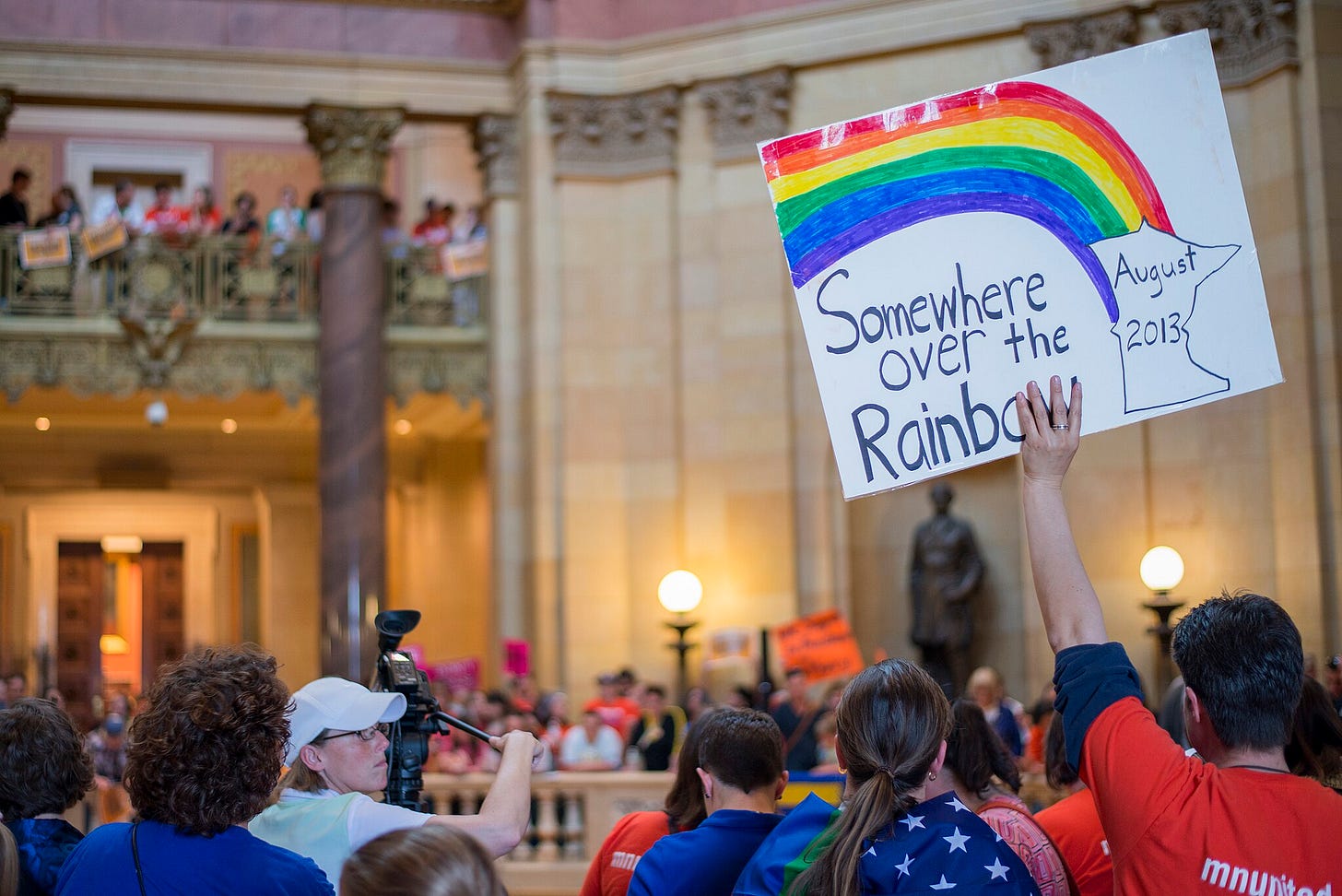The Slippery Slope Argument
Andrew Sullivan’s misunderstanding of how this argument works in practice

The debates over gay marriage and trans rights require far more depth and nuance than I intend to give here with this short post, but I wanted to respond to a specific part of a column that Andrew Sullivan posted yesterday.
The first thing I’ll say, is that you should absolutely read this column. I found it very interesting overall and my complaint is possibly overly pedantic in nature, but I’m going to state it anyway.
Sullivan writes:
This, in the end, is my response to all the “slippery slope” arguments about gay marriage now being raised again on the right. There is no slope in the case I made. There is a clear line: formal legal equality alongside cultural and social freedom on all sides. From my liberal conservative perspective, the gay rights movement should have shut down in 2015 after Obergefell; and the trans rights movement should have shut down in 2020 after Bostock. Once gay men and lesbians and trans people achieved legal and constitutional equality, the fight was over.
I emphasized the key sentence in Sullivan’s paragraph that shows, in my opinion, that he does not understand the slippery slope argument. The individual case that Andrew Sullivan made in favor of marriage equality is irrelevant to whether or not there was a slippery slope from marriage equality to the current iteration of what Sullivan calls the Transqueer movement. Feel however you want about marriage equality or the Transqueer movement, that’s not relevant to the issue of the slippery slope itself. The slippery slope argument states that X will lead to Y, regardless of whether you support X leading to Y or not. Sullivan was and is a fervent supporter of marriage equality and not so much the Transqueer movement, but that doesn’t mean that the U.S. government recognizing gay marriage didn’t lead to the rise of the Transqueer movement.
Now maybe there was objectively no slippery slope from marriage equality to the Transqueer movement, I don’t think I’m in a position to make the argument either way if I’m honest. My own personal belief is that there probably was, but these are not issues that I’m particularly animated by in the first place so there are better people to listen to on the subject. That said, it seems to me that Sullivan undermines his own argument in regards to the slippery slope with his very next paragraph.
But in the movement I was once a part of, many, of course, were not liberals, let alone liberal conservatives — but radicals, who reluctantly went along with marriage equality, but itched to transform society far more comprehensively. And these radicals now control everything in the hollowed-out gay rights apparatus. Their main ticket item is a law that would replace biological sex with gender in the law, and remove protections for religious liberty: smashing the liberal settlement.
So the people he was fighting for marriage equality alongside did not, as he acknowledges here, share his position that this was the end goal in and of itself. In other words, they were fighting for marriage equality as a step in the direction of, as he says, transforming society. Is that not the slippery slope argument put into practice?
As I said, my complaint is over one small portion of an otherwise very interesting read from Andrew Sullivan, but since he specifically emphasized it in a note as a critique to people on the right who might otherwise agree with him it seemed like a response was warranted.



